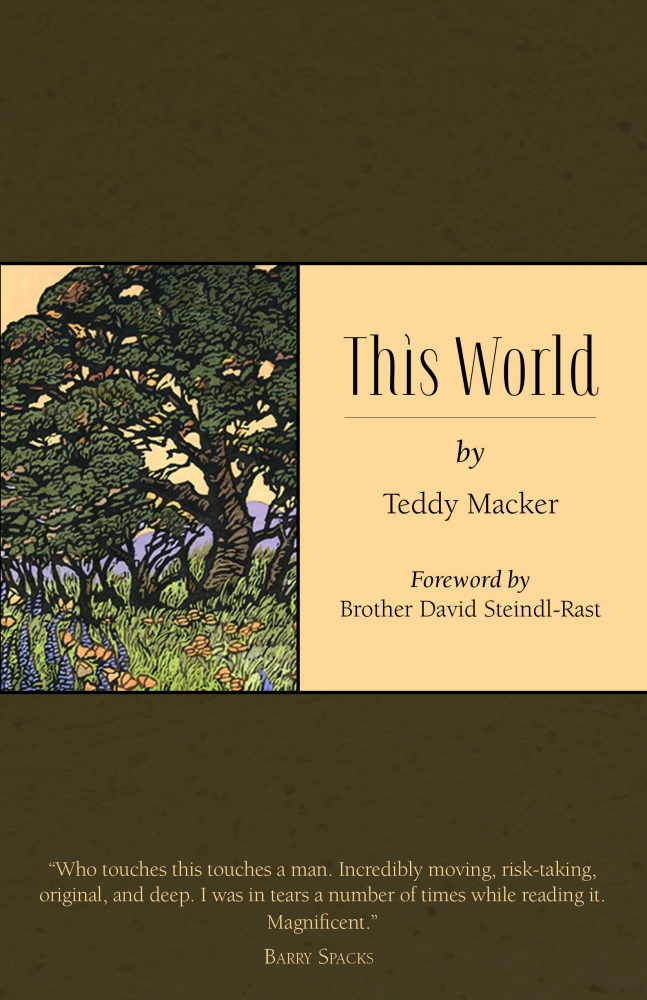
The World As It Is

To read Teddy Macker’s poetry is to taste the sudden tartness of a peach and the “foggy sweetness of pear,” to smell fish and kelp and to hear the coyotes in the canyons and the sea lions barking offshore.
The poems and prose vignettes in “This World” (White Cloud Press, 2015) are a hymn to coastal California by a fifth-generation native. Yet Macker, a lecturer in the Writing and Literature Program of UC Santa Barbara’s College of Creative Studies, does not pine for a world that no longer exists or for some paradise beyond.
The title of his first collection of poetry comes from a line in a poem by John Holmes, who taught at Tufts University many years before Macker was an undergraduate there, yet whose presence lingered on campus decades after his death. Macker used to walk by a stone outside the English department inscribed with a line from one of Holmes’ poems: “This is this world, the kingdom I was looking for.”
So it is that amid the rich imagery in Macker’s work, where a raspberry becomes a “ruby thimble” and “chalice of July oblivion,” there are also oil platforms and piers reduced to nothing but pilings.
“I’m trying to honor the world as it is, the oil derricks and parking lots and packing peanuts,” Macker said. “I also, like many who are even somewhat awake, am saddened by how things have changed so much in terms of the natural world and definitely feel deep concern. But I don’t want that deep concern, that fear that one can feel, I don’t want that to eclipse one’s feeling of gratitude and one’s feeling of deep connection and one’s feeling of reverence.”
Macker’s work is infused with a spirituality that embraces both Christianity and Buddhism, an appreciation of the divine in the mundane.
“Joseph Campbell, another hero of mine, said religion is looking up at a tree and saying, ‘Ah!’” Macker said.
Macker’s poems revel in the beauty of daily life in a world filled with the presence of his wife and young daughters and their days working and tending a small orchard on a family farm near Carpinteria.
Yet all is not always blissful, and a middle portion of the book is sharp with a deep grief and then eases with slow healing, illustrated in the selection “Sometimes a Sapling”:
Sometimes a sapling grows up close to a barbed wire fence, and the trunk, over years and years, by night and by day, absorbs—mysteriously, unnoticed, in a great silentness—those maiming knots, those raucous burrs . . . and then one afternoon (and you won’t see this until far after it’s happened) the wondrous, mighty-trunked creature will not be separable from a thing you once thought shouldn’t be there.
Life — this world — bursts forth in Macker’s work, then retreats, lies dormant and blooms again.
“I feel like the book captures the seasons,” he said. “I think it’s safe to say it begins with spring. I like to think it ends with spring, too.”



